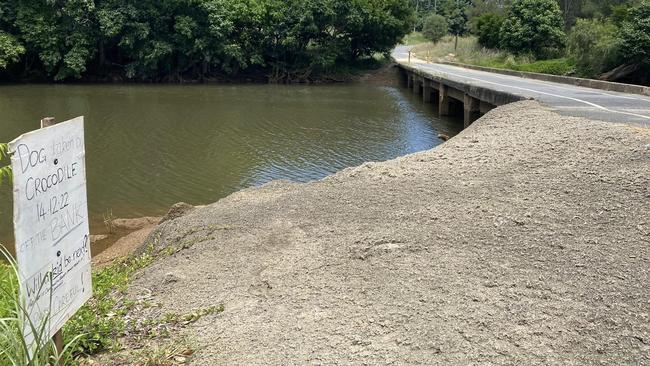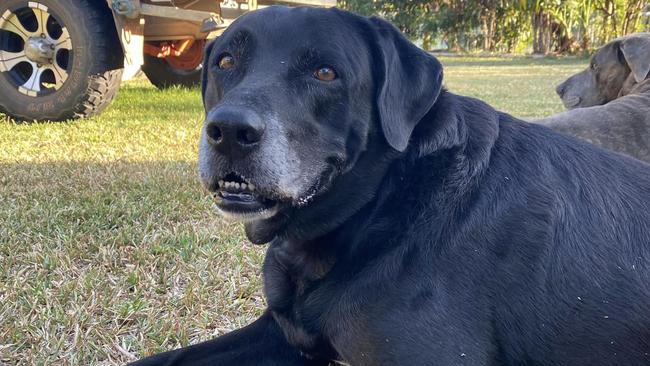Warning issued off the back of second croc sighting at Kamerunga
The Department of Environment and Science has issued a crocodile warning for Kamerunga and the Barron River after a second croc sighting near where a Labrador was taken.
Cairns
Don't miss out on the headlines from Cairns. Followed categories will be added to My News.
The Department of Environment and Science has issued a crocodile warning for Kamerunga and the Barron River after a second croc sighting near where a Labrador was taken.
The warning comes after Cairns woman Alia Baxter had her 45kg Labrador Indie attacked and eaten by a large crocodile while on a walk near the Lower Kamerunga footbridge on Wednesday afternoon.
A 2.4m crocodile was trapped by crocodile contractors on Wednesday after the attack, but later that evening a second crocodile was discovered as contractors performed a spotlight survey of the Barron River near Kamerunga.

The second crocodile is being targeted for removal.
Senior wildlife officer Steve Coulson said to “always assume crocs are in the area” and to stay at least two metres from the water’s edge.
“The warmer weather means the crocs are more active, which also means they are digesting quicker and hunting more,” he said.
The Barron River is an active removal zone for crocodiles, but Mr Coulson urged the community to act as though a croc is always around.

“Don’t leave fishing bait or food scraps around … we see the most aggressive crocs hang around after food has been left on the bank” he said.
On Wednesday, Ms Baxter’s father Alan Benn said his daughter was walking her dogs along the commonly-used council bikeway when Indie was taken.
Mr Benn said he used the area regularly and expressed great fear for the upcoming
summer holidays.
“It’s just a matter of time before a real tragedy occurs and a young child goes missing,” he said.
“Locals have all seen this crocodile swimming up and down the lake heaps of time in the past.”
The Department of Environmental Science urges the community to call them or report a sighting online when a croc is spotted, especially in an urban area.
All crocodile sightings should be reported on 1300 130 372.
The Department of Environment and Heritage Protection records and investigates all crocodile reports.
More Coverage
Originally published as Warning issued off the back of second croc sighting at Kamerunga




